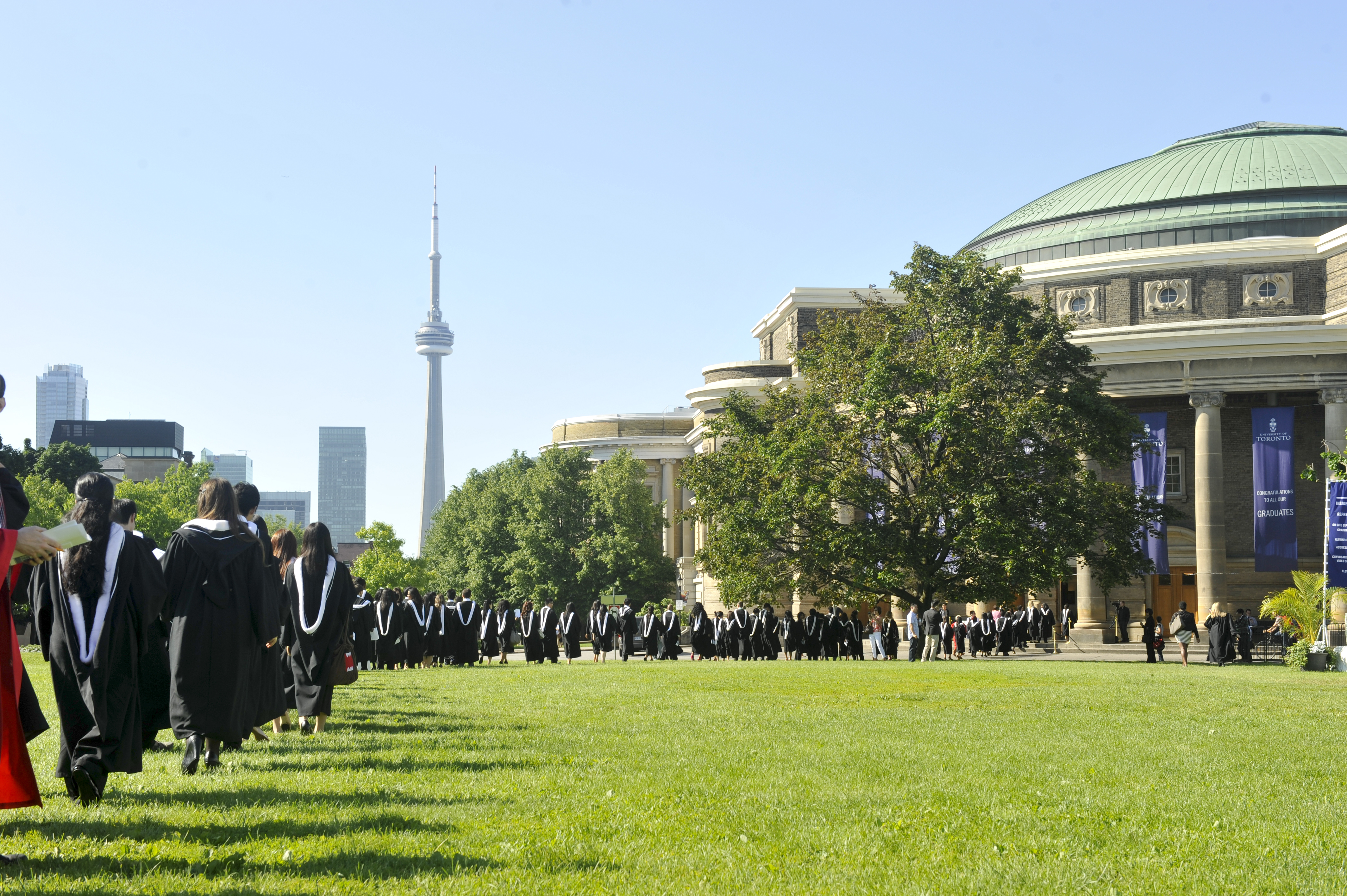Future Postdocs

From graduate student to independent researcher
Transitioning to postdoctoral studies may be your next step forward!
Who are Postdoctoral Fellows?
Postdocs must have recently (normally within five years) been awarded a PhD or equivalent degree. As a postdoctoral fellow, you will be an essential member of the University and its partnerships by working with faculty, conducting research, and engaging with graduate students.
Getting a Postdoctoral Fellowship at U of T
Prospective postdocs are encouraged to identify and contact faculty members who have similar research interests to discuss the possibility of becoming a postdoc with a particular faculty member’s research team.
The maximum initial term of engagement is three years. In special circumstances, a further extension of up to three years is permitted with decanal approval in multi-department faculties, and provostial approval in single-department faculties. The engagement will expire, without any further payment obligations by the University, on the date specified in the letter of engagement.
Prospective postdocs arrange their engagements directly with a faculty supervisor and not through a central U of T office. Postdocs can be based at a University unit or at an affiliated hospital.
Occasionally both University units and affiliated hospitals employ a variety of recruitment techniques including: advertisements in local or national publications, offers on a unit website or a faculty member’s web page, and the recommendations of colleagues.
How to Search for a Faculty Member with Similar Research Interests
1. Prepare a research proposal.
2. Contact a faculty member directly with your proposal. You can find a faculty member that shares your research interests by consulting the websites below as well as searching for faculty members based on research expertise can be done on the Vice-President, Research & Innovation website: https://discover.research.utoronto.ca/.
Graduate unit (departments, centres, and institutes) websites will have a list of graduate faculty members and their area of interest. See the listing of U of T graduate units. See also departments in the Faculty of Medicine.
3. Be prepared to be interviewed. Faculty supervisors are encouraged to interview and review the skills of prospective postdocs prior to engaging them in postdoctoral activities. Postdocs and their faculty supervisors must ensure that professional growth and career advancement are achieved during your time at U of T. Faculty members are looking to select postdocs who will contribute to their research teams and, in turn, provide the resources needed for postdocs to contribute to their field of interest through publications, professional presentations, and teaching/mentoring the activities of junior researchers.
4. Secure at least $50,000 per year (Employee Postdoc minimum effective March 15, 2024). You can secure funding from external granting agencies (government, health organization, etc.) or fellowship programs or you may be offered funding from your faculty supervisor’s grant or research resources, in the form of a salary. Possible sources for securing your own funding are listed in the postdoctoral funding section of the Awards & Financial Assistance table. You cannot be a postdoc at U of T on your own personal funds.
Getting a Postdoctoral Fellowship Outside U of T
The following teaching hospitals and other organizations may have opportunities for postdoctoral fellowships if you’re looking to train at these places. There are also some helpful job search sites below.
Teaching Hospitals
Baycrest Centre for Geriatric Care
Centre for Addiction and Mental Health
Holland Bloorview Kids Rehabilitation Hospital
The Hospital for Sick Children
Mount Sinai Hospital
St. Michael’s Hospital
Sunnybrook Health Science Centre
University Health Network
Women’s College Hospital
Associations, Societies, Councils and Institutes
Universities Canada
Committee on Science, Engineering, and Public Policy
Healthcare Excellence Canada
Canadian Hemophilia Society
Networks of Centres of Excellence of Canada
Ontario Centre of Innovation
Arthritis Society Canada
Canadian Foundation for Innovation
Heart and Stroke Foundation of Canada
Andrew W. Mellon Foundation
Council of Ontario Universities
MS Canada
Diabetes Canada
Canadian Institute for Theoretical Astrophysics
TECHNATION
Canadian Association of Physicists
Postdoctoral and Academic Job Search Websites
Postdocs – searchable database of posting listings
Science – search under “science careers” to access postdoctoral positions in the sciences
The Scientist – lists postdoctoral positions in the sciences
Townsend Centre for Humanities – UC Berkeley maintains this site with links to postdocs in the humanities
UC Berkeley – Social Sciences
UC Berkeley – Biological Sciences
Academic Jobs (Wiki) – Humanities and Social Sciences postdoc opportunities
Questions?
Email: sgs.postdoc@utoronto.ca
In person: SGS Postdoctoral Office, 63 St. George Street, Room 101
